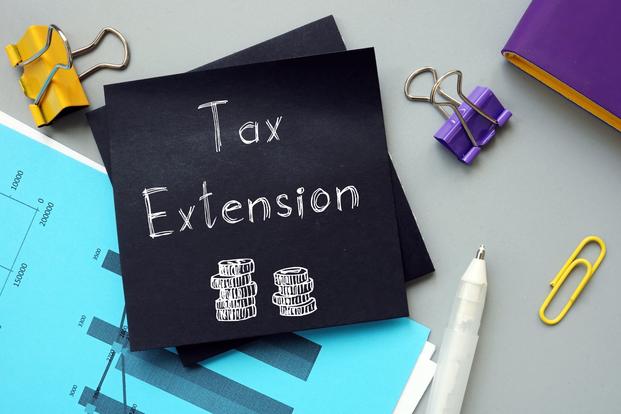Doing your taxes is never fun. So if you're a procrastinator, you may be tempted to file for an extension to buy yourself an extra six months. It's true that if you file for an extension, you won't have to file your 2022 return until Oct. 16, 2023. But there are a few things you should know first.
5 Myths About Filing for a Tax Extension
Filing for a tax extension is pretty easy, but there are a lot of misconceptions about the topic. Here are five myths you shouldn't believe.
Myth No. 1: If I File for an Extension, I Don't Need to Pay Until Oct. 16
The truth: Getting a tax extension gives you more time to submit a return, but you don't get extra time to pay. You're still required to estimate the taxes you owe and pay them by Tax Day, which is April 18, 2023. Otherwise, you'll pay late fees and interest. You can generally avoid penalties for the 2022 tax year if you do one of the following by April 18:
- Pay at least 90% of what you owe for 2022.
- Pay 100% of your tax liability for 2021 if your adjusted gross income (AGI) was less than $150,000.
- Pay 110% of your tax liability for 2021 if your AGI was more than $150,000.
- You owe less than $1,000 after subtracting withholdings and credits.
If you can't afford to pay, it's still essential that you either file a tax return or request an extension. The penalty for not filing a return on time is 5% of your unpaid tax bill per month, up to 25% of what you owe. But if you file and don't pay, it's only 0.5% per month of the unpaid amount, up to 25%.
You can set up a payment plan online in most cases if you can't afford the entire amount due.
Myth No. 2: You Need a Reason to Ask for an Extension
The truth: The IRS doesn't ask for a reason when you request a tax extension. The IRS will automatically approve your request as long as you've filled out the form correctly and on time.
Myth No. 3: An Extension Gives Me More Time to Fund My IRA and HSA
The truth: The deadline for funding your individual retirement account or health savings account (HSA) is Tax Day, regardless of whether you file for an extension. That means that April 18 is the last day you can contribute to your Roth IRA, traditional IRA or HSA and have the contribution count for 2022 instead of 2023.
Myth No. 4: You Need Professional Help to Request an Extension
The truth: You can file easily using whatever tax filing software you normally use. If you have trouble estimating your taxes, as you're required to do when you request an extension, that's a pretty good sign that you need to call a pro for tax help, regardless of whether you're filing for an extension.
Myth No. 5: An Extension Increases Your Odds of Being Audited
The truth: The IRS doesn't view a request for an extension with suspicion; asking for one won't increase your chances of an audit. In fact, if extra time is what you need to make sure your return is error free, an extension could actually help you avoid an audit.
Some things that are known to trigger audits: having a high income, reporting very little income, home office deductions, being self-employed (especially if you deduct lots of business expenses) and numerous charitable deductions.
This article was originally published by The Penny Hoarder.
Get the Latest Financial Tips
Whether you're trying to balance your budget, build up your credit, select a good life insurance program or are gearing up for a home purchase, Military.com has you covered. Subscribe to Military.com and get the latest military benefit updates and tips delivered straight to your inbox.




